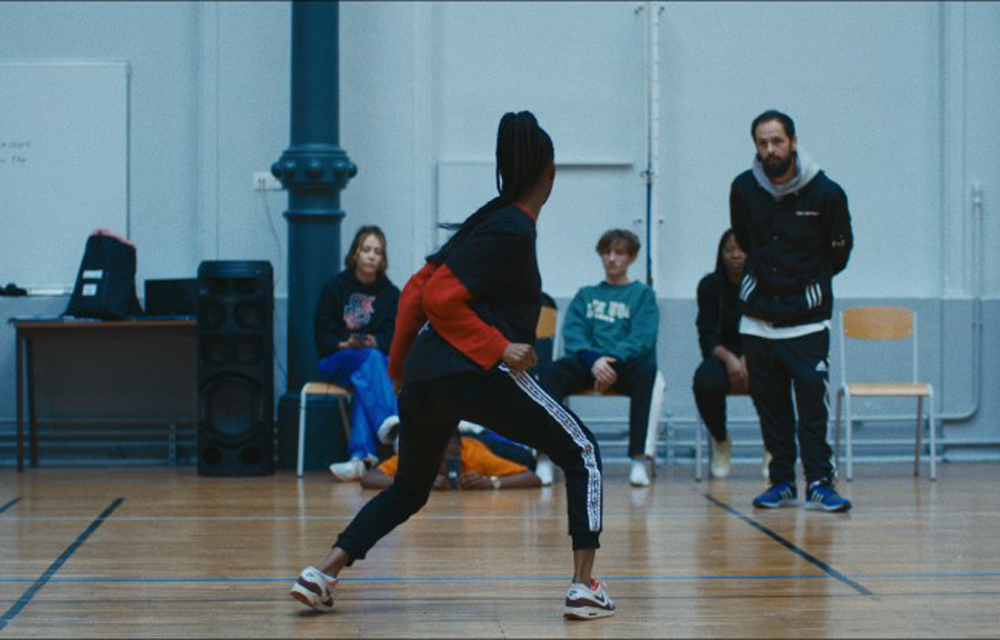“To them, we’re punks,” says a student at Turgot High School in “Rookies (Allons enfants),” alluding to the suburb of Paris she comes from where her ethnicity makes her stand out, a sentiment that any of her classmates would be hard-pressed to disagree with. As co-directors Thierry Demaizière and Alban Teurlai find, it isn’t just an outlet for personal expression she and others have at Turgot, which uses the carrot of dance to get students to engage in other educational pursuits, luring a collection of misfits who together suggest it wasn’t a failure on their end to assimilate, but a sense of belonging in a place where the culture continually feels too rigid towards anyone who isn’t a white male. The principal at Turgot fits that bill, but he addresses his students as pioneers when they walk to class, seemingly taking part in an experiment where on the verge of dropping out elsewhere, they might thrive under a curriculum that is applied in a different way, prioritizing dance, but requiring at least a few steps towards English and algebra.
If this sounds like the premise for the next “Footloose” or “Step Up,” it won’t be surprising when “Rookies” becomes the jumping off point for next such sensation as a drama, but it’s pretty irresistible as a doc, shaking off any trappings of the form with its visual kineticism and avoidance of narrative tropes to mirrors their subjects’ feelings toward the school, occasionally undercutting a great dance sequence with the cold reality they have to study Emile Zola where students that were so energetic on the floor have trouble keeping their face from falling flat on their desk. The interviews Demaizière and Teurlai do conduct with the students feel candid and conspiratorial, full of typical teenage swagger but something just a bit extra in an awareness of their plight, frequently citing a world they feel they can’t break into, no matter how hard they try.
Moving stealthily through a school year that isn’t tethered to usual benchmarks, “Rookies” nonetheless wends it’s way towards the inevitability that a multicultural school administered by an all-white staff, no matter how well-meaning, is bound to have blind spots, locating a spine in student/faculty review sessions that may be convened to discuss the students’ shortcomings in class, but exposes the teachers’ as well. (One student brings up being mistaken more than once for a Black classmate to a teacher more inclined to defend herself than acknowledge it may have happened, giving shape to the kinds of cultural attitudes it’s difficult to reshape.) The clear divisions make for a particularly satisfying second half in which a team coalesces to compete at a dance battle, with no one asked to give up their individualism for the team to thrive, but instead that personal expression is what sets them apart as a whole.
Still, Demaizière and Teurlai are careful not to offer such clean conclusions when regardless of race, no one-size-fits-all strategy towards schooling is going perfectly accommodate everyone, yet “Rookies” refreshingly puts its subjects all on equal footing as far as airing their perspectives, allowing one to appreciate all the moves being made to allow for the freedom they have on the dance floor to hopefully extend into the classroom.
“Rookies” will screen at Berlinale on February 11th at 10:30 am at HKW, February 14th at 2:30 pm at Cubix 8, February 18th at 3:30 pm at Filmtheater am Friedrichshain and February 19th at 6 pm at Cineplex Titania.




